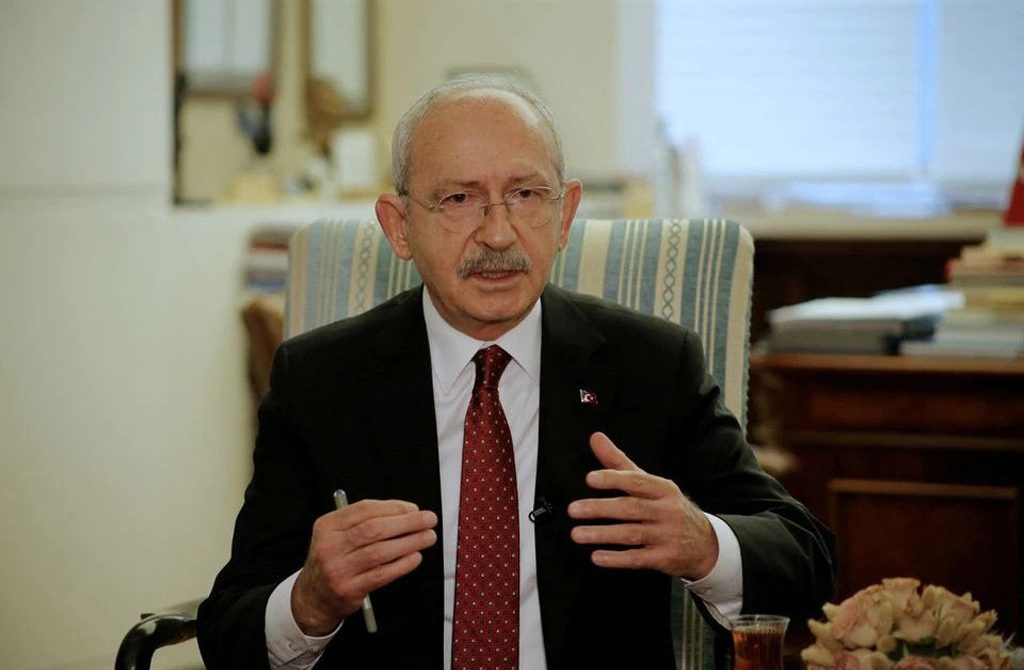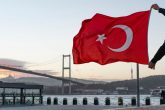The final days of 2022 have arrived, and the most popular topic in Turkish politics remains the opposition’s unidentified presidential candidate. The opposition bloc, known as the “table for six,” was originally expected to deliberate on that issue in early January. Yet, the main opposition Republican People’s Party (CHP) Chairperson Kemal Kılıçdaroğlu, announced that the selection of a presidential candidate would not be on the agenda during the opposition’s Jan. 5 meeting either.
Having further strengthened his stance due to the diminished likelihood of Istanbul Mayor Ekrem Imamoğlu’s candidacy, the main opposition leader insists that the system, rather than the candidate, matters most. Urging reporters to stop asking whom the opposition bloc will endorse, he noted that there is no clear timeline for next year’s election yet. As such, Kılıçdaroğlu said, the “table for six” will discuss “a common discourse and government agenda” and “a roadmap for transition” next.
There is no way of knowing whether Kılıçdaroğlu’s renewed emphasis on the official timeline for the election relates to the possibility of Imamoğlu being banned from politics. Still, it serves the CHP chairperson’s interests that the opposition bloc has not even decided whether to endorse a single candidate or multiple candidates. As the chairperson of the most popular opposition party, he is more likely to ask opposition leaders to endorse him as their presidential candidate. Kılıçdaroğlu could also thwart any attempt by Meral Akşener, the Good Party (IP) chairperson, to push for the endorsement of Ankara Mayor Mansur Yavaş.
Akşener’s moves
Hardly anyone expects Akşener to concede defeat, yet her potential move to promote Yavaş’s candidacy is unlikely to be effective either. Indeed, some people could easily accuse her of having brushed aside Imamoğlu, whom Akşener recently described as her “brother.” The only potential game-changer would have been Akşener asking for the opposition’s endorsement herself – which, she must be thinking, was an opportunity wasted prematurely.
The failure of Akşener’s various moves and the focus of all other opposition leaders on a common agenda and the electoral processes enable Kılıçdaroğlu to chart the opposition bloc’s course as he pleases. Having mastered the skill of keeping power struggles within his party and the opposition bloc under control, Kılıçdaroğlu feels pretty comfortable right now. As a matter of fact, he even gets to tell voters that the opposition delays the endorsement of its presidential candidate to “defend (the candidate) against the ruling party’s future moves.” In this regard, Kemal Kılıçdaroğlu gets to campaign as if he will run for president but also wait for the opposition bloc to agree on a common agenda and for the official countdown to begin. The CHP chair also hopes that the opposition’s supporters will be ready to think of him as an electable candidate by that time.
It is best to ignore Kılıçdaroğlu’s emphasis on the importance of the political system. What matters most is who will contest the presidential election. As such, that argument is merely intended to promote the main opposition leader himself. Furthermore, it serves to delay the selection of a presidential candidate by the opposition bloc, making it more and more likely for Kılıçdaroğlu to receive their endorsement. In this sense, the CHP chairperson wants to use “the system” and “the table’s endorsement” to his current profile as “the most obvious candidate.”
Kılıçdaroğlu’s prime weakness
It also gets harder and harder for other opposition leaders to oppose the candidacy of Kılıçdaroğlu, who brought them together and pledged to restore the parliamentary system. Everyone, except Akşener, could be persuaded with an offer to serve as a vice president in the new Cabinet. Indeed, those opposition leaders who are focused on the 2028 elections might not think of Kılıçdaroğlu’s transitional presidency, which would take a few years, as a serious problem.
By contrast, Kılıçdaroğlu’s primary weakness is that he stands to challenge President Recep Tayyip Erdoğan as the CHP chairperson. Everyone already knows Kılıçdaroğlu, which means that the opposition would not be endorsing a surprise candidate. Moreover, there is a difference between successfully imposing one’s candidacy on the “table for six” and inspiring hope among voters. Having decided to choose between a single candidate and multiple candidates as late as possible, the opposition bloc may have no choice but to agree on Kılıçdaroğlu’s candidacy. It would certainly be interesting to see how they would respond to the following question, “Did we hold discussions for the past two years to get here?”
In this article
- Opinion
- 14 May 2023 Turkish General Election
- 2023 Turkish General Elections Presidential Candidates
- 2023 Turkish Presidential Election
- Ankara Metropolitan Municipality Mayor
- Daily Sabah
- Ekrem Imamoğlu
- Istanbul Metropolitan Municipality Mayor
- Kemal Kılıçdaroğlu
- Mansur Yavaş
- Meral Akşener
- Recep Tayyip Erdoğan
- Table for Six | Turkish Opposition Alliance
- Turkish President
- Türkiye's 2023 Elections
- Türkiye's Good Party (IP) Chairperson
- Türkiye's Republican People’s Party (CHP) Chairperson



